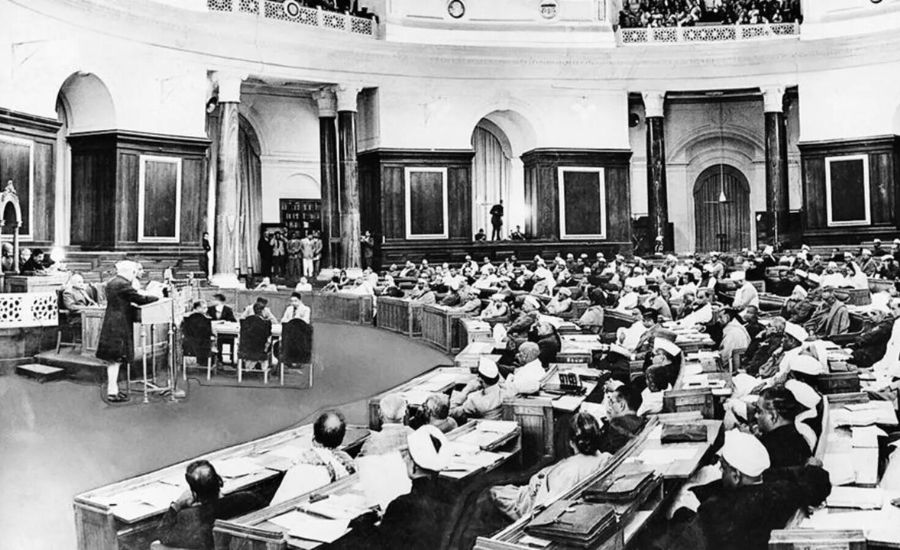
Two weeks ago, Vice President Jagdeep Dhankhar , declared that the addition of the words “socialist,” and “secular,” to the Preamble during the Emergency amounted to “sacrilege to the spirit of sanatan.” Assam Chief Minister Himanta Biswa Sarma echoed the sentiment, characterizing “socialism” and “secularism” as alien imports—Western constructs with no place in India’s civilizational ethos. Their remarks mark the latest iteration of a recurring ideological battle in Indian political discourse—one that resurfaces every now and then around the Constitution’s preamble.
In 2020, the debate had taken the form of a petition before the Supreme Court challenging the constitutional validity of the 42nd Amendment of 1976, which inserted “Socialist” and “Secular” into the Preamble of the Constitution. The petition rests, in part, on originalist grounds—arguing that the framers of the Constitution deliberately chose not to include these terms in 1950 hinting that these were not values that our Constitution framers endorsed.
That argument invites a closer look at the Constituent Assembly’s debates. When the Preamble itself finally came up for discussion on 17 October 1949—after most of the Constitution had already been debated and adopted—these terms drew little attention. The record of the discussion is sparse and reveals little about the framers’ specific views on “secularism” or “socialism” as terms to be included in the preamble.
Yet, across the Constituent Assembly Debates, we do find clear evidence of how the framers understood the role of religion and state. During discussions on the oath of office for the President (Draft Article 49), an amendment was proposed to include an invocation to God. R.K. Sidhwa and several members opposed the move, insisting this was not appropriate.
Ambedkar, however, was unbothered by the proposal, stating: “...Some Members have raised objections to the amendment. They are afraid that the introduction of the word ‘God’ in the Constitution is going to alter the nature of what has been proclaimed to be a secular State...”
Here, Ambedkar stated unequivocally that India was conceived as a secular republic. While the term itself may not have been embedded in the Preamble, it was a key value upon which India’s constitutional republic was built.
As for socialism, Ambedkar was again forthright. In defending the Directive Principles of State Policy, he said: “…If these Directive Principles are not socialistic in their direction and content, I fail to understand what more socialism can be...”
In both instances—secularism and socialism—Ambedkar’s statements met with little resistance in the Assembly, suggesting a broad, if implicit, consensus. Perhaps this is why the judiciary, over time, has upheld the inclusion of these words in the Preamble. In Minerva Mills (1980), the Supreme Court held that the amendment was not only within the framework of the Constitution but in fact gave “vitality to its philosophy.” More recently, in Hindu Front for Justice v. Union of India (2016), the Allahabad High Court observed that these ideals were already “ingrained in the constitutional scheme.”
As H.V. Kamath put it in the Constituent Assembly, the Preamble articulates the “character of the future constitutional structure.” While the framers did not see a need to insert the words “socialist” and “secular” in 1950, it is evident that many regarded these principles as intrinsic to the vision of the Indian republic—a vision that finds expression throughout the Constitution.
